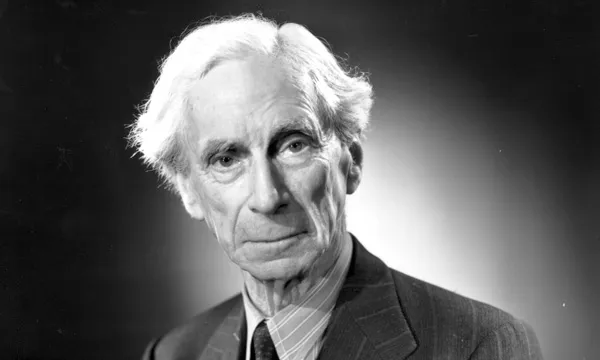Russell, one of the greatest thinkers of the 20th century, made important contributions to logic, epistemology, and the philosophy of mathematics. However, he was best known to the general public as a peace activist and a well-liked writer on social, political, and ethical issues. He got married four times, was involved in countless public controversies, published more than 70 books, wrote roughly 2,000 articles, lived a long, successful, and occasionally turbulent life, and was praised and derided by people from all over the world almost equally. Russell’s essay on the implications of relativity for philosophy was included in the 13th edition of the Encyclopedia’s Britannica.

The late Bertrand Russell
In 1896, Russell published German Social Democracy, his first work of political writing. Despite having sympathy for the reformist goals of the German socialist movement, it contained some incisive and insightful critiques of Marxist dogma. Alys Pearsall Smith, his first wife, whom he had married the previous year, and he traveled to Berlin in 1895. This trip served as some of the inspiration for the book. Russell created an ambitious plan in Berlin to write two series of books, one on social and political issues and the other on the philosophy of the sciences. Hegelian synthesis would finally be attained, as he later stated, “in an encyclopedic work dealing equally with theory and practice. In the end, he did write about every subject he had planned, just not the way he had anticipated. He quickly abandoned the metaphysical idealism that was supposed to have served as the basis for this grand synthesis after finishing his geometry book.
Russell’s abandonment of idealism is typically attributed to his friend and fellow Apostle G. E. Moore. Much more influential on his thinking at this time were the German mathematicians Karl Eigenstress, Georg Cantor, and Richard Dedekind, whose work aimed to provide mathematics with a set of rigorously logical foundations. For Russell, their achievement had profound philosophical and mathematical ramifications; he even referred to it as “the greatest triumph of which our age can boast.”. “After reading this body of work, Russell abandoned all traces of his earlier idealism and took up the conviction, which he was to hold for the rest of his life, that analysis rather than synthesis was the most reliable method of philosophy and that, as a result, all the elaborate system building of earlier philosophers was misguided. By passionately and skillfully supporting this viewpoint, Russell made a significant contribution to the entire tradition of English-speaking analytic philosophy, leaving behind his distinctive method, tone, and style.
The tragedy of Russell’s intellectual life is that as he gave logic more serious thought, his lofty perception of its significance was put in jeopardy. He undertook what he called, in terms of philosophical advancement, a “retreat from Pythagoras” after publishing The Principles of Mathematics. This retreat began with his discovery of a contradiction at the center of the logical framework he had hoped to use to build all of mathematics, which is now known as Russell’s Paradox. The following elements contribute to the contradiction: Some classes are members of themselves (e. g. , the highest class), but others are not (e. g. It makes sense that we should be able to create the class of all classes that are not members of themselves (e.g., the class of all men). We run into a contradiction, though, if we ask this class if it is a member of itself. If not, it isn’t, and if not, it isn’t. This would be comparable to asking the neighborhood barber if he shaves after referring to him as “the man who shaves all those who do not shave themselves.”. “.
In an effort to solve the paradox, Russell made one advancement to the fundamental theory after another, which ultimately led to a complete transformation of his logic scheme. In the process, important parts of his “Pythagorean” theory of logic were abandoned. Russell specifically came to the conclusion that logic was not the study of classes and propositions because those concepts do not exist. He replaced them with the incredibly difficult-to-understand “ramified theory of types,” which, despite successfully avoiding contradictions like Russell’s Paradox, was (and still is) very difficult to understand. By the time he and his collaborator Alfred North Whitehead had completed the three volumes of Principia Mathematica (1910–13), the theory of types and other additions to the basic logical system had made it unmanageably complex. Few philosophers or mathematicians have made the substantial effort required to fully comprehend the subtleties of this enormous work. However, it is justly regarded as one of the 20th century’s greatest intellectual achievements.
The Principles of Mathematics had argued that mathematics is a subset of logic, and Principia Mathematica is a monumental attempt to demonstrate this mathematically. There is still debate about the work’s overall philosophical significance, even though there hasn’t been much disagreement about the precision of the individual formal proofs that make up the majority of its three volumes. It only proves that mathematics is logical if one accepts the theory of types as a logical truth, and there is much more room for doubt regarding this than there was regarding the trivial truisms upon which Russell had originally intended to base mathematics.
Related Posts
Donald Trump – Best Guide in 2023
